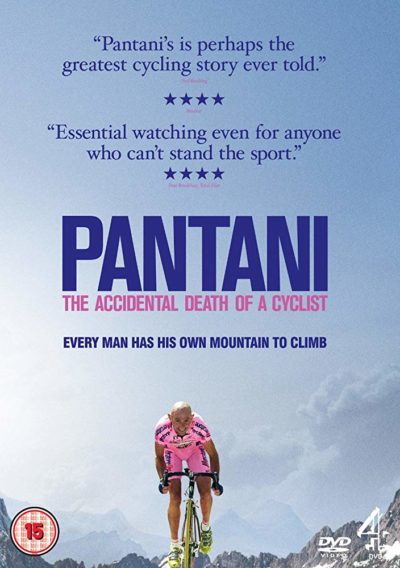
As this year’s Tour De France swept through the streets of Yorkshire, a new documentary about the legendary climber Marco Pantani, Pantani: The Accidental Death of a Cyclist appeared at the cinemas. At the same time, Channel 4 chose to show the TV premiere of The Armstrong Lie, which had a cinema release earlier this year.
On the face of it, the two riders’ stories are very similar. Both achieved fame winning the ultimate cycling race and both were subsequently found to have been using banned substances at a time when doping was virtually universal in the sport. However, Pantani’s story is of a man with prodigious, possibly unique, talents who was caught up in a team doping programme, and who suffered with horrendous guilt as a result. Armstrong was a good cyclist who achieved unprecedented results by a calculated, most systematic method of doping, which he was largely orchestrating.
That is certainly how the film makers pitch their stories, and it is easy to go along with those views. Pantani was an romantic, somewhat heroic figure, nicknamed ‘The Pirate’, dancing up the mountains on his pedals and struggling in the flat stages of races, whereas Armstrong was an arrogant bully, effective in all stages. Also anyone interested in the sport were fully aware of Armstrong’s methods – despite his constant denial – long before he was officially exposed.
Of the two films, Pantani’s is the better starting point for non-cycling enthusiasts as it provides a lot more background to the sport and the Tour de France. You will also learn more about the man as it concentrates a lot of time on his youthful cycling exploits and his rise to fame. At the end, it left me with a sense of profound sadness, as Pantani’s troubled life spiralled out of control.
Maybe it is because of his tragically early death he is given a fairly easy ride in the film when it comes to the doping stories. Insinuations of conspiracies and left hanging in the air and he’s presented as a victim of his circumstances. At just over an hour and a half, the story is told in a economical way with good contributions from journalists Richard Williams and Matt Rendell, who wrote the book that the film was based on. Less successful were the dramatic reconstructions, though there are only a few of those.
The Armstrong Lie started out as a celebration of the rider as he attempted his ill-fated comeback from retirement in 2009. As the story broke of his drug taking and he confessed to his misdeeds on Oprah, so the writer/director/narrator Alex Gibney had to change tack. At various points in the film he tells us what he thought at the time he filmed footage and what he thinks now. As well as showing his naivety, it is a device that becomes a little bit wearing.
The film is more of a straightforward exposé, but suffers a little from not being able to shed any new light on the revelations. True, Gibney has access to Armstrong, but he remains strangely remorseless and his apologies lack sincerity. What are more interesting are the contributions from crusading journalist David Walsh, who worked for years to expose him, and Betsy Andreu the wife of team mate Frankie, who was one of the first to speak out against Armstrong. I would have appreciated a bit more digging into the archives to show how he was accused and denied cheating allegations over the years, and more information about his intimidation of other riders, though at over two hours it is already a little flabby..
Both of the films are worth seeing when you are not watching this year’s tour!
Ratings
Pantani: The Accidental Death of a Cyclist : 7.5 out of 10
The Armstrong Lie: 7 out of 10